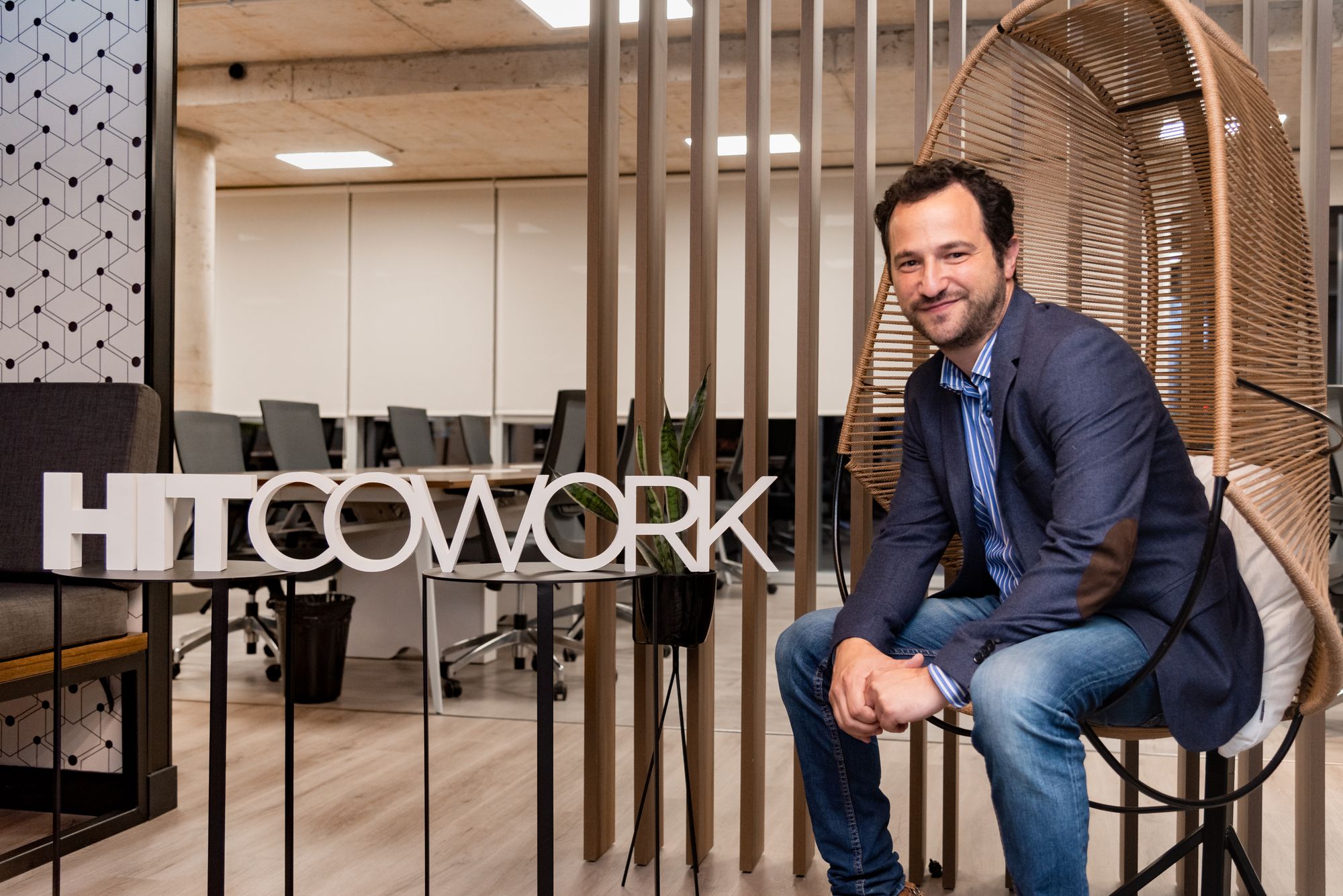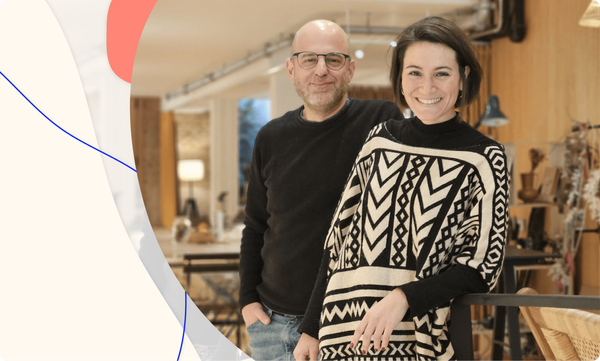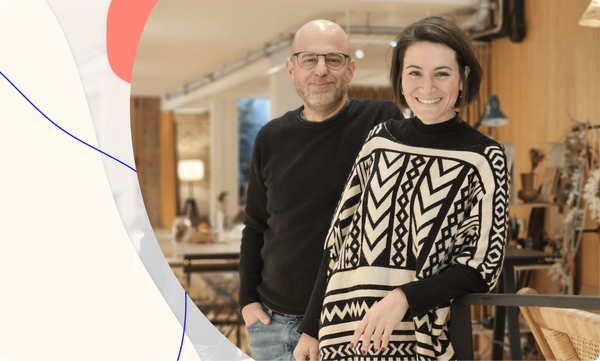Puedes leer este artículo en español aquí.
Uri Iskin, an economics graduate with a master’s degree in marketing, is a thirty-eight year old Brazilian who has been living in Argentina for almost three decades. Married, with three children, he is the CEO and co-founder of HIT cowork. “I’ve always been passionate about technology, services and community.” Maybe that’s why Uri started working for the Spanish telecommunications company Telefónica where, as he tells us, “I was profiled to enter the flexible workspace sector.”
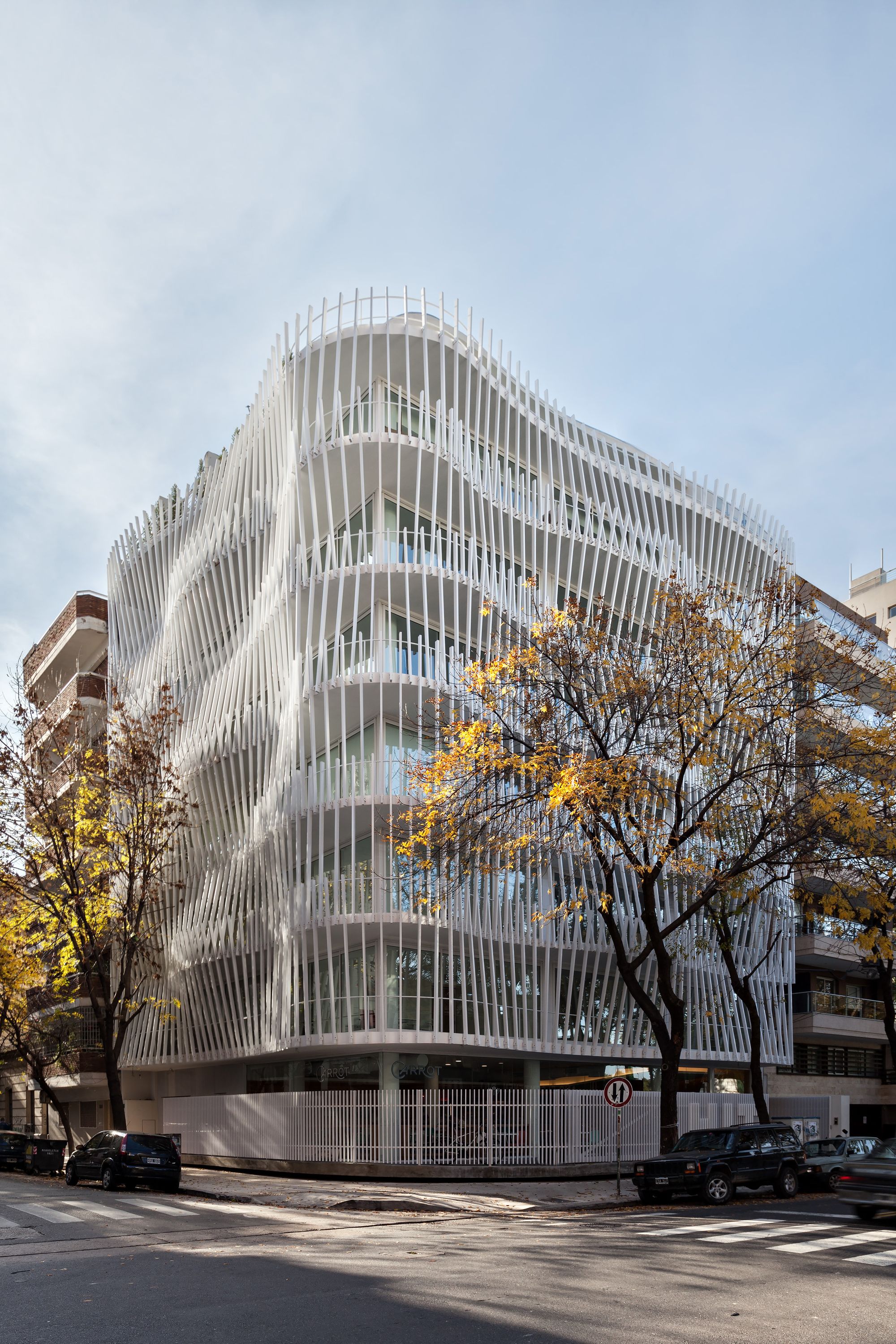
HIT Group already existed. It was a family-owned corporate real estate company in which “there was the idea of generating a new business unit focused on coworking.” Hit Group, Uri tells us, has four different units. The largest is the developer, which builds buildings, but it also has HIT arco (corporate architecture), which is in charge of designing the spaces, and Open office, which is in charge of providing furniture and other elements. The fourth is obviously HIT cowork which has nine spaces in Buenos Aires, one in Valparaiso (Chile) and another in Lima (Peru) with a total of 30,000m2 and 5000 “desks,” a staff of almost one hundred people, and the ambition to expand to Brazil, Colombia, Uruguay, and Mexico.
“From day one we had an inclination towards the corporate sector and also from day one we had to fight a lot with the concept that people have of a coworking [space] where [one] can’t customize anything and [they] have to share with a millennial or a hipster.”
“That’s why even though we started in 2015 from 2016 or 2017 we started talking about ‘flex space,’ flexible offices or offices in service mode, instead of coworking.”
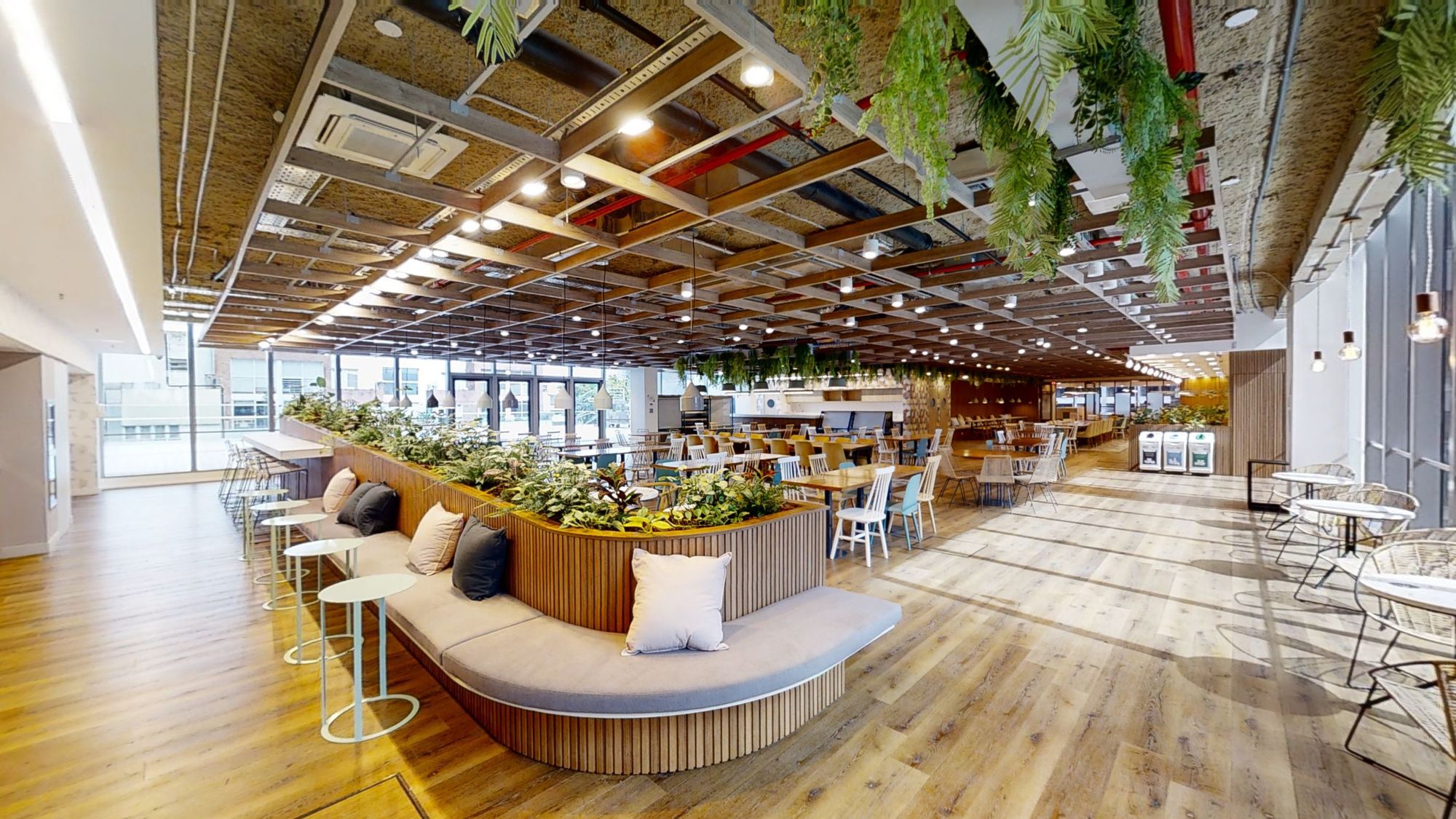
HIT cowork is 100% focused on this type of audience. In 2017 they closed their first big contract with a company like Accenture, but during the conversation I had with Uri, Google, Banco Santander, or Danone appeared. For companies, Uri tells us, having a flexible space allows them to set up with a KPEX from scratch and be able to grow and shrink much more flexibly than with a traditional contract. These types of advantages are especially useful when they acquire a new company, open a new division, embark on a project that will last for a period of time, foreign companies that want to enter a market, startups with rapid growth or when there is a lot of uncertainty....
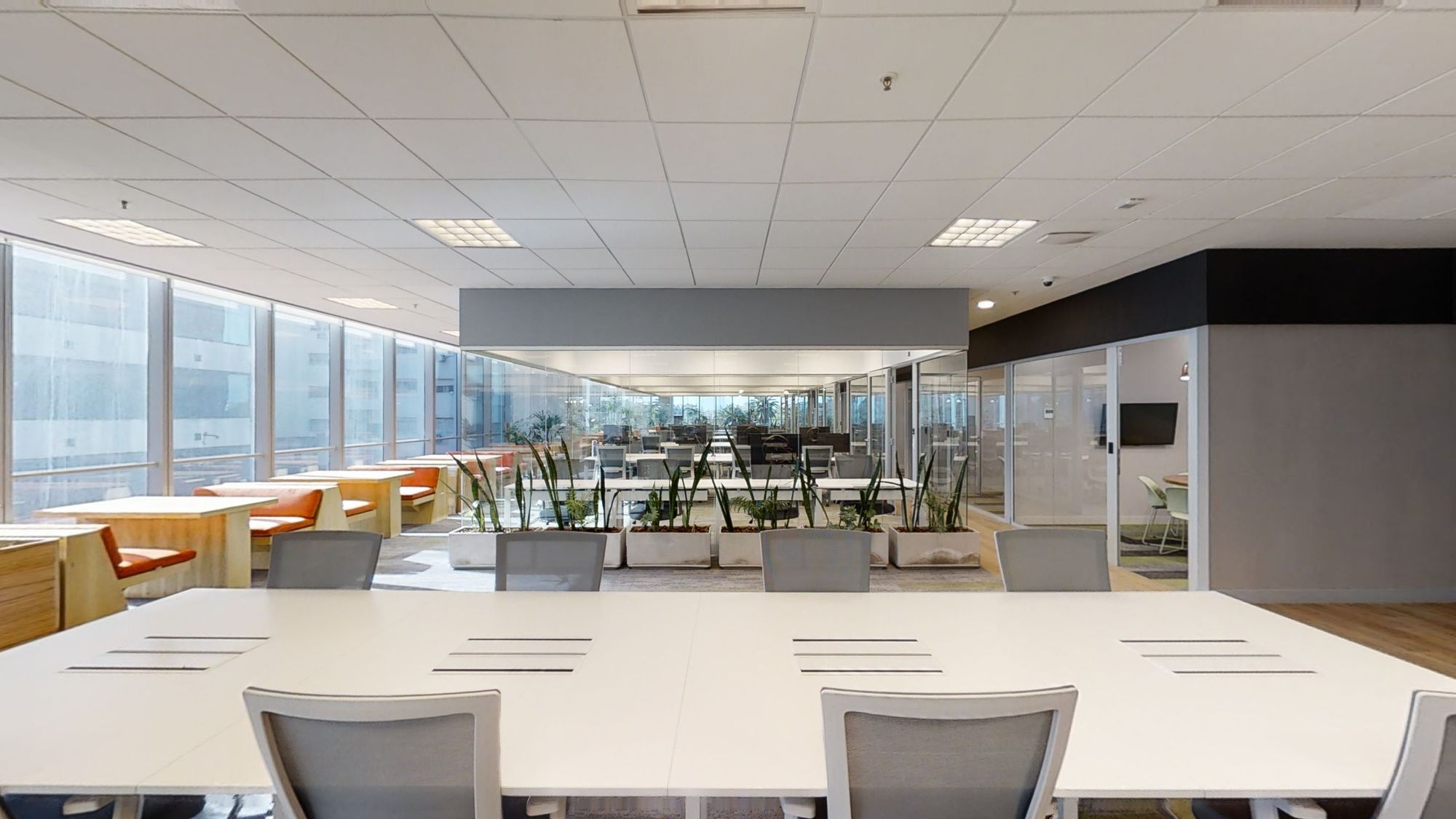
“And then 2020 came along. We reviewed densities, layouts, protocols... and we took advantage of this moment of reduced movement to improve our efficiency. In April-May we had a drop in turnover of between 5-10%, which corresponded to approximately 5% of the flexible memberships we had at that time [it should be taken into account that flexible workspaces focused on corporate clients have longer contracts and therefore take longer to be able to make cancellations effective]. Companies with expiring contracts were less likely to renew.”
“This is how we reached August, which was our lowest point, when the vacancy rate did not reach 50%.”
This situation obviously caused them to have an operating P&L in the red for some months. In the last quarter of the year the situation improved and they were able to close some contracts leaving a positive operating P&L.
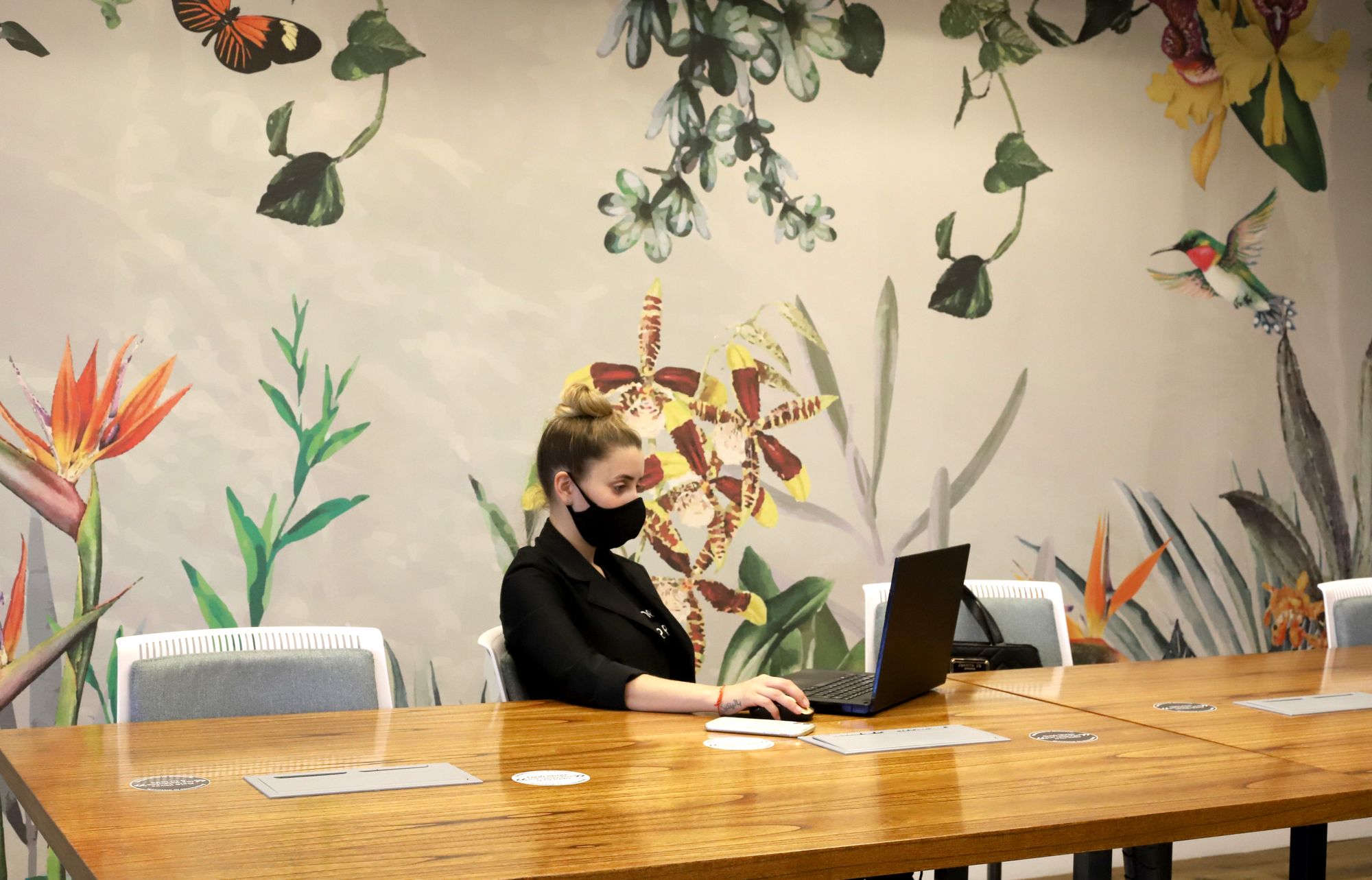
Thus Danone occupied the office that Accenture had vacated, moving to a flexible scheme. “Danone in Argentina is shrinking a lot, going from a five thousand meters office to a much smaller position.” HIT’s size allowed them to use this “central” office and at the same time any other space spread throughout the city. In this way it was able to reduce office-related costs by 75%.
“It’s impressive, the savings that are generated when a company can change its mindset and adopt this mode of use.”
Although so far they have not had to downsize in terms of space, they have taken the decision not to renovate a space they had available, located in what they define as micro-central Buenos Aires. “Obviously it is a place that has taken a hit to demand. Fortunately we did not have to make any drastic decision because the owners of our spaces have been very supportive and have allowed us to offer the degree of flexibility that our clients demand.”
“The industry will be transformed.”
And while he wants to believe in a future where remote work can reach everyone, he believes the next decade will be one of transformation. “In the short run it hurts and it will continue to hurt for a while longer until the world is more vaccinated and we leave these times behind. It’s not clear what’s going to happen with offices, with demand, with stock,... but I think if we open our eyes and in 2022 or 2023 everyone is vaccinated I don’t see why we shouldn’t go back to the office. I like to believe in a future with the necessary technology to be able to do without the office but I think that future is not here yet.”
“The pandemic will not pass and return everything back to the way it was. We are changing the way we do our business. You used to rent a lot of square footage to a landlord at the lowest possible price for a long period of time. You transformed that space so that you could offer it in small portions in fractions of time to companies that were looking for flexibility that traditional real estate could not give them. That clearly has a problem, all analysts pointed out when they had to evaluate the IPO in 2019 of a competitor we all know [WeWork]: in the event of a crisis you have long-term obligations that you can’t get out of while your clientele has short-term commitments. We also saw this in 2001 with IWG’s Chapter 11 or Knotel’s current one [finally acquired by Newmark].”
“The incentives between operator and owner were not aligned. It didn’t make any sense: if you’re an operator and you have your place empty there’s no way you can pay your rent. What's coming forward is a shared business.”
“It’s about understanding that the operator is not only providing a service to his customer but also to the owner of the space by adding a layer of services to his square footage.
“Up until now this worked without worry, but this is no longer working: this is the wake up call that the pandemic brought.” According to Uri, the opportunity for operators similar to HIT is “to help these landlords, these large square footage holders convert their spaces to serviced spaces, to flexible spaces. This is the big challenge, and those who don't get it will be the Kodaks of real estate.”
No one knows when or how we will leave these times behind, but a phrase stood out that Uri Iskin read recently and mentioned in our conversation:
“The short term is still tough. The long term is promising and will be bright.”
If you aren’t already using Cobot as your coworking management software, give it a go! You’ll find that our features can help you run your coworking space more effectively and grow your community. Just sign up for a free trial or a live demo session. And if you have questions, our support team is all ears!
Happy Coworking!
